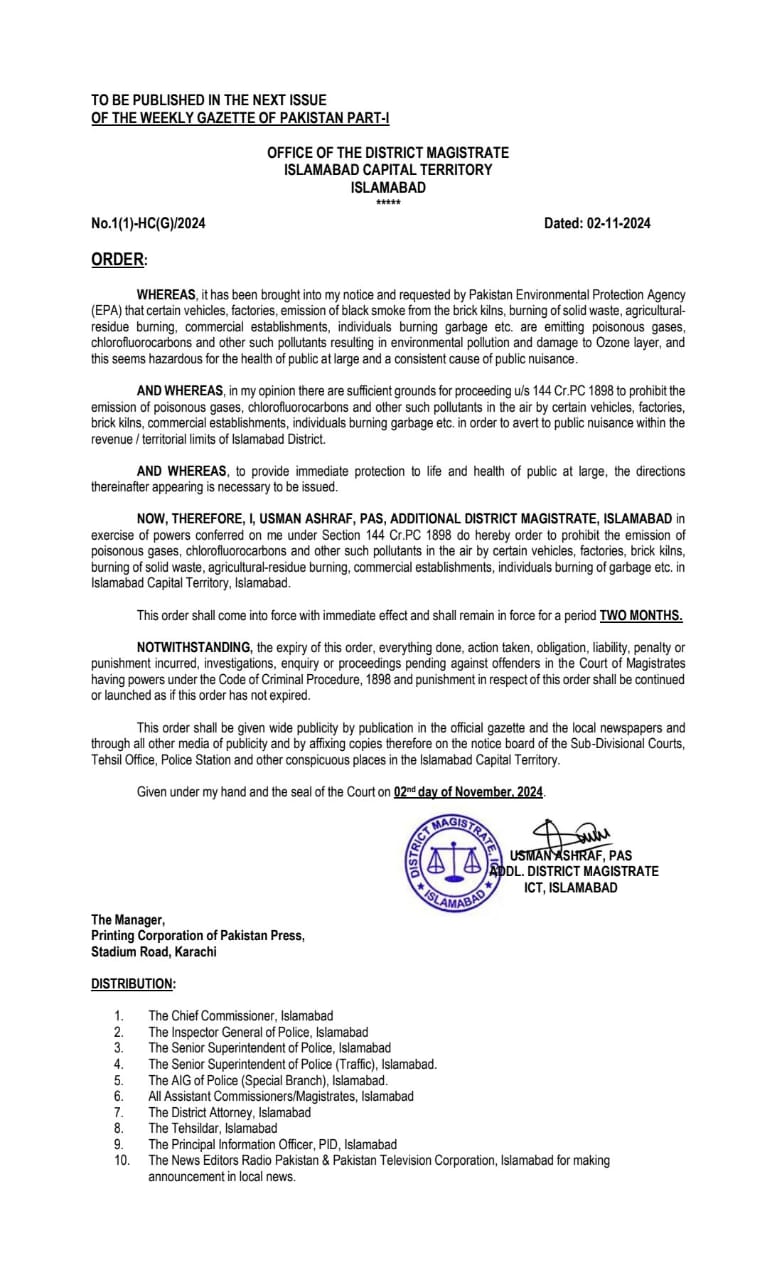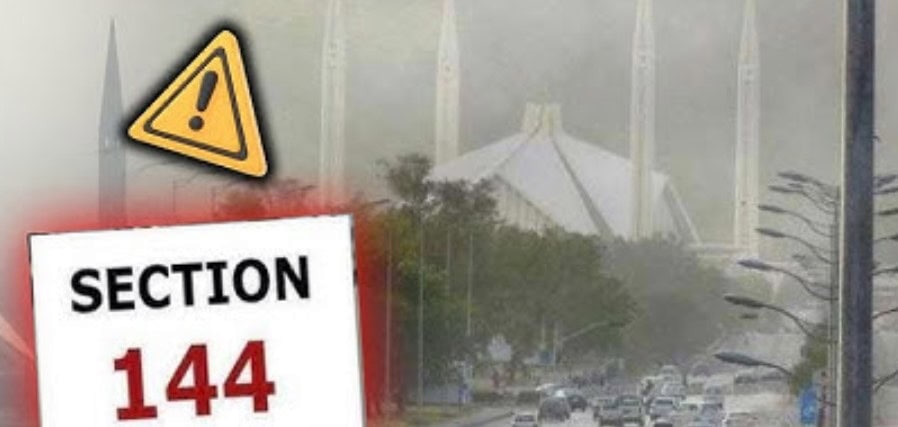ISLAMABAD – Authorities in Pakistan’s federal capital Islamabad imposed Section 144 to curb harmful emissions in the metropolis as the Air Quality Level deteriorated.
The new restrictions prohibit emissions from vehicles, factories, and brick kilns, as well as the burning of waste and crops. The regulations will be in force for two months, with strict penalties for violators.
The stern measures were taken as Islamabad’s air quality index (AQI) reached unhealthy levels, with PM2.5 levels peaking at 169. Health experts warn that these conditions pose serious risks to the city’s residents.

Provincial Disaster Management Authority (PDMA) declared a smog emergency, implementing measures to mitigate the crisis. Activities contributing to smog, such as crop residue burning, operating visibly smoking vehicles, and running industries without emission control systems, have been prohibited.
These hikes in particulate matter have been linked to firework displays during Diwali celebrations in New Delhi, raising further health concerns.
As Islamabad enforced section 144 to address air pollution crisis, Punjab government also pushed broader environmental initiatives to combat smog.
Lahore Smog Alert: Basic Tips to Protect Yourself from Toxic Air Pollution










